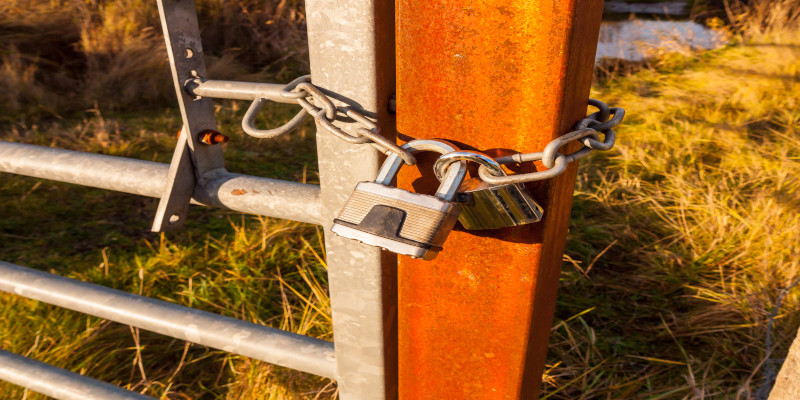
This post on Request for Motion for Entry Upon Property is the fourth part of a seven-part series on forms of discovery in Texas. The topics are listed below:
Initial Disclosures
Request for Production and Inspection
Interrogatories
Request for Motion for Entry Upon Property
Admissions
Depositions
Subpoenas
Request for Motion for Entry Upon Property
In civil litigation, discovery refers to the process where parties in a lawsuit exchange relevant facts and information about a case. As part of the discovery process, a litigant may need to gain entry onto the responding party’s property to gather relevant information. Rule 196.7 of the Texas Rules of Civil Procedure offers guidelines and procedures on how best to do that.
No fewer than 30 days before the end of the discovery period, a litigant may gain access to land. If specifically requested, a litigant may also photograph, measure, test, and/or sample the property or anything on that property. The request for access must be given to any and all property owners, whether or not they are part of the claim being filed. In the request, the litigant must specify exactly when, where, how, and by whom the inspection will be made. In addition, the litigant must fully define the conditions, procedures, and scope of inspection within the request.
In the interest of full disclosure, the responding party must grant the request for access unless all or part of the request is not reasonable. If denying all or part of the request, however, the responding party must state appropriate objections and/or applicable privileges. Even though the responding party may deny the request, the court may order entry onto a non-party’s property, especially if access to that property is clearly relevant to the claim.
Below we provide the full text of Rule 196.7, which details the guidelines and procedures for a Request for Motion for Entry Upon Property:
Rule 196.7. Request or Motion for Entry Upon Property
(a) Request or motion. A party may gain entry on designated land or other property to inspect, measure, survey, photograph, test, or sample the property or any designated object or operation thereon by serving - no later than 30 days before the end of any applicable discovery period –
(1) a request on all parties if the land or property belongs to a party, or
(2) a motion and notice of hearing on all parties and the nonparty if the land or property belongs to a nonparty. If the identity or address of the nonparty is unknown and cannot be obtained through reasonable diligence, the court must permit service by means other than those specified in Rule 21a that are reasonably calculated to give the nonparty notice of the motion and hearing.
(b) Time, place, and other conditions. The request for entry upon a party's property, or the order for entry upon a nonparty's property, must state the time, place, manner, conditions, and scope of the inspection, and must specifically describe any desired means, manner, and procedure for testing or sampling, and the person or persons by whom the inspection, testing, or sampling is to be made.
(c) Response to request for entry.
(1) Time to respond. The responding party must serve a written response on the requesting party within 30 days after service of the request, except that a defendant served with a request before the defendant's answer is due need not respond until 50 days after service of the request.
(2) Content of response. The responding party must state objections and assert privileges as required by these rules, and state, as appropriate, that:
(A) entry or other requested action will be permitted as requested;
(B) entry or other requested action will take place at a specified time and place, if the responding party is objecting to the time and place of production; or
(C) entry or other requested action cannot be permitted for reasons stated in the response.
(d) Requirements for order for entry on nonparty's property. An order for entry on a nonparty's property may issue only for good cause shown and only if the land, property, or object thereon as to which discovery is sought is relevant to the subject matter of the action.
Tex. R. Civ. P. 196.7
Rules about Requests for Motion for Entry Upon Property require strict compliance with the law. Experienced litigation attorneys should be consulted to navigate all aspects of the discovery process.
All information provided on Silblawfirm.com (hereinafter "website") is provided for informational purposes only, and is not intended to be used for legal advice. Users of this website should not take any actions or refrain from taking any actions based upon content or information on this website. Users of this site should contact a licensed Texas attorney for a full and complete review of their legal issues.
